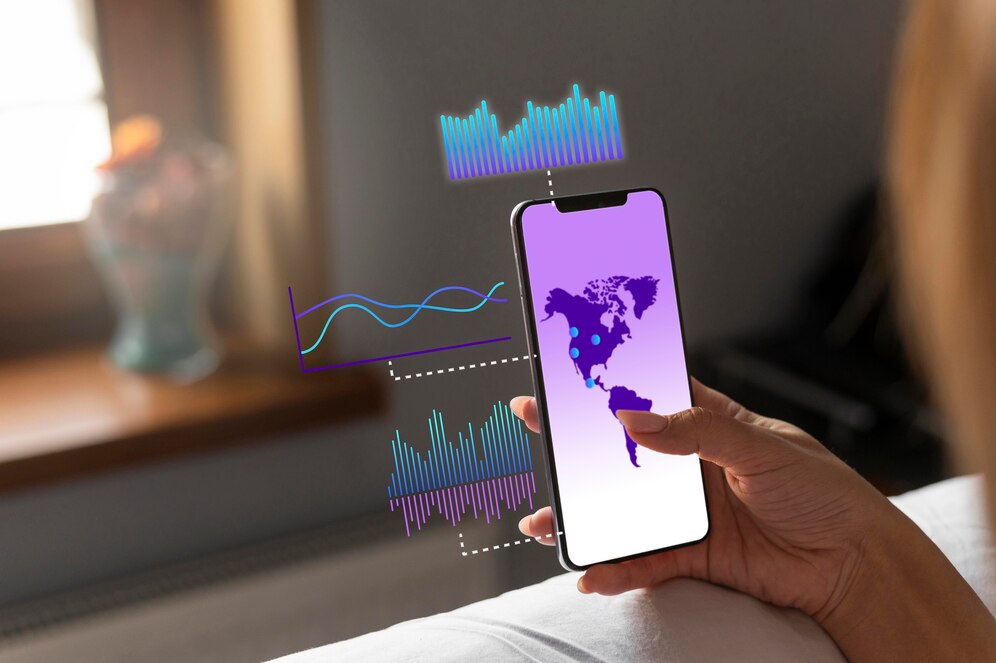
Artificial Intelligence has transformed stock market analysis. It uses powerful computing to process vast amounts of data. By processing this data, it identifies patterns that traditional human analysis might miss. In manual trading, fundamental and technical analysis relies on human expertise. AI uses machine learning techniques such as supervised, unsupervised, and reinforcement learning. These techniques help in predicting stock price movements.
According to studies and reviews, it is observed that AI can sometimes outperform human analysts. However, humans still excel in understanding market emotions, unpredictable events, and unique stock conditions.
In this blog, we will learn how accurate AI traders are for stock market forecasting. Also, we will explore how reliable AI-based trading algorithms are for predicting stock prices. What is the accuracy of AI stock market forecasting compared to traditional methods? Can AI traders outperform human traders in stock market predictions? Let’s get into the blog to get details!
AI is used in algorithmic trading and sentiment analysis. It is also helpful in portfolio management and detailed market analysis. This helps investors make more informed decisions. It faces issues in unexpected market situations that have never occurred before. Sometimes, it becomes difficult for AI to predict stock prices with absolute certainty or accuracy but it always enhances market analysis. When it is combined with human expertise, it leads to more innovative trading strategies.
AI traders can assess huge financial datasets. It finds patterns and places trades itself with high speed and precision. This makes them highly effective in stock market forecasting. In stable market conditions, AI models can achieve 60-80% accuracy. However, their performance drops in volatile situations influenced by unexpected events like economic crises or geopolitical shifts.
While AI excels in data processing and risk management, it struggles with human emotions and unpredictable market behavior. So, AI trading is better used as a tool to support decision-making.
How Reliable are AI-Based Trading Algorithms for Predicting Stock Prices?
Among all other features of AI in trading, the best one is the ability to perform analysis on huge historical datasets. It uses this market data to detect trends. It helps AI models to predict how stocks might perform based on past market behavior. Please know that the stock prices can be volatile and there can be slight differences in prediction results.
AI-based trading algorithms have transformed stock market analysis. AI uses machine learning to increase its effectiveness with high speed and precision. Studies have shown that hedge funds achieved 34% returns using AI, compared to 12% for traditional hedge funds. This highlights its potential in stock price forecasting.
AI algorithms can be complex and lack transparency. Only a few platforms are offering AI-based algorithms that provide reliable predictions for stock prices. One of the top training platforms with accurate results is the AI Trader platform.
This makes it difficult for investors to fully trust their predictions. AI enhances risk management, optimizes trading strategies, and provides real-time market insights. However, it cannot replace human intuition, experience, and the ability to interpret market sentiment.
Errors can still occur, particularly in volatile conditions, so AI-based trading should be used as a decision-support tool rather than a guaranteed predictor. Investors should combine AI analysis with traditional financial evaluation methods. Such as company earnings reports and market trends, to make well-informed trading decisions.
Accuracy of AI Stock Market Forecasting Compared to Traditional Methods
Stock trading has traditionally relied on fundamental and technical analysis. Also, it depends on market sentiments to predict price movements. Fundamental analysis examines financial statements and economic conditions, while technical analysis focuses on past price patterns. However, these methods can struggle with unexpected market changes. Moreover, traditional methods provide a deeper context by considering qualitative factors such as company leadership, regulatory changes, and investor behavior. AI struggles to interpret these elements accurately.
In contrast, AI-based trading utilizes massive data from many sources. This can be from the market trends, financial reports, and social media. It gives a broader and more accurate view of the market. AI is scalable, automated, and gives real-time alerts. It can spot trends faster than traditional processes.
Emotional decisions and biases caused by greed and fear are wiped off by Artificial Intelligence. Investors can therefore better understand investments and make more rational and reasoned investment decisions. AI also enhances risk management by backtesting strategies and diversifying portfolios. Even though AI reduces costs and improves efficiency, the human touch is invaluable for understanding market behavior. You can use these together for optimal results. It will ensure a balanced and effective trading strategy.
Can AI Traders Outperform Human Traders in Stock Market Predictions?
After looking at the facts and reviews, we have learned that AI cannot fully outperform human traders in the stock market or any other financial market. This is because there are some parts in which Artificial Intelligence is performing better than human traders. And in some parts, human traders are functioning well.
To improve trading processes like market analysis and trading automation, AI provides results with accuracy. But when it comes to predictions, AI sometimes faces issues. This is because the stock market is highly volatile. Furthermore, AI cannot understand human emotions and qualitative factors such as company leadership, regulatory changes, and investor behavior. These give better results when they are processed by human traders. In short, AI traders cannot outperform human traders in the stock market. For enhanced results, combining these two will be a better strategy.
Conclusion
AI has greatly improved stock market analysis and helped investors make informed decisions. Some AI traders can achieve high accuracy, especially in stable market conditions, but they still face challenges in unpredictable situations. They struggle to understand human emotions and market sentiment. For best results, you can choose the AI Trader platform.
Human expertise provides valuable insights that AI alone cannot replace. The best approach is to combine AI with human analysis. Use AI for data-driven insights and automation while relying on human judgment. This will improve their overall success in the stock market.
